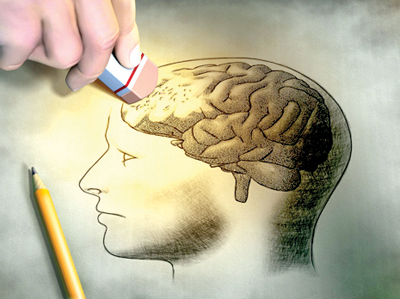Cognitive decline is considered as a significant concern today and engaging in brain exercises is vital in that case not only to combat dementia but also to create happiness and overall well-being. As research continues to unveil the intricate workings of the human brain, the importance of keeping it sharp and agile becomes increasingly evident.
Understanding dementia
 Dementia, characterised by a decline in cognitive function severe enough to interfere with daily life, encompasses a range of symptoms affecting memory, thinking, and social abilities.
Dementia, characterised by a decline in cognitive function severe enough to interfere with daily life, encompasses a range of symptoms affecting memory, thinking, and social abilities.
Alzheimer’s disease, the most common form of dementia, accounts for a significant portion of cases. However, vascular dementia, Lewy body dementia, and frontotemporal dementia are among other prevalent types.
The role of brain exercise
Brain exercises, encompassing a variety of mental activities aimed at stimulating cognitive function, play a pivotal role in maintaining brain health and resilience against dementia. These exercises include puzzles, games, learning new skills, reading, socialising, and engaging in mentally challenging tasks.
By continuously challenging the brain, individuals can strengthen neural connections, enhance cognitive reserve, and potentially delay the onset or progression of dementia.
Combatting dementia
Several studies highlight the benefits of brain exercise in reducing the risk of cognitive decline and dementia.
Research suggests that mentally stimulating activities, such as crossword puzzles, Sudoku, and learning new languages, can lower the risk of developing dementia by promoting neuroplasticity—the brain’s ability to reorganise and form new connections. Moreover, engaging in social activities and maintaining strong social connections has been linked to a reduced risk of cognitive impairment.
Enhancing happiness
Beyond its protective effects against dementia, brain exercise contributes to overall happiness and well-being.
Engaging in mentally stimulating activities provides a sense of accomplishment, boosts self-esteem, and fosters a positive outlook on life. Learning new skills or hobbies fosters a sense of purpose and fulfillment, enriching one’s life experience. Social interactions associated with many brain exercises promote feelings of belonging and connectedness, essential elements of happiness.
Brain exercise and daily life
 Incorporating brain exercises into daily routines doesn’t have to be daunting. Simple activities such as reading, doing puzzles, playing board games, or engaging in conversation can make a great difference. Moreover, adopting a lifelong learning mindset, where individuals continuously seek out new challenges and opportunities to expand their knowledge and skills, is key to maintaining cognitive vitality.
Incorporating brain exercises into daily routines doesn’t have to be daunting. Simple activities such as reading, doing puzzles, playing board games, or engaging in conversation can make a great difference. Moreover, adopting a lifelong learning mindset, where individuals continuously seek out new challenges and opportunities to expand their knowledge and skills, is key to maintaining cognitive vitality.
Prioritising brain exercise is a proactive measure to safeguard brain health and promote happiness. By embracing a lifestyle rich in mentally stimulating activities and social interactions, individuals can not only ward off cognitive decline but also cultivate a fulfilling and vibrant life. As the adage goes, “Use it or lose it”—and when it comes to brain health, proactive engagement is indeed the key to longevity and well-being.
Be close to nature
Staying closer to nature can play a significant role in combatting dementia. Research suggests that spending time outdoors, surrounded by greenery and natural landscapes, can improve cognitive function and reduce the risk of developing dementia. The calming effect of nature can help alleviate stress and anxiety, which are known risk factors for dementia. Moreover, activities such as walking in parks, gardening, or simply enjoying the beauty of natural surroundings can stimulate the brain and promote mental well-being. By fostering a deeper connection with nature, individuals may enhance their overall brain health and potentially lower their risk of cognitive decline.









